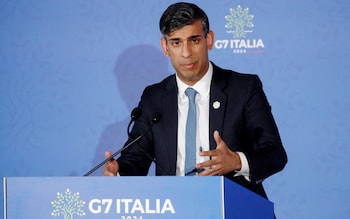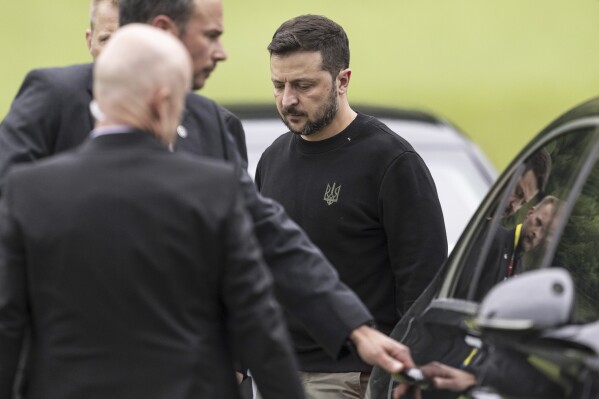The leaders of the G7 have agreed in Italy to provide Ukraine with $50 billion in new funding, using the interest on frozen Russian assets to secure a loan. It is an unusual and controversial deal. Some countries feared that, while the intention was a noble one, it could serve to damage trust in the Western-led financial system if money held in Europe was not only sanctioned, but diverted to other purposes. Could it not be seen as a breach of the very international law that Ukraine and its allies are seeking to uphold in the face of Russian aggression?
But the deal’s proponents argue that this danger has been averted by not touching the principal, only the profits. Ukraine is also gaining access to longer-term funding without having to rely on sometimes fickle Western politicians.
The money will certainly be welcome in Kyiv, which has only just begun to see the benefits of a separate $60 billion military aid package from Washington. It is also positive that Western leaders have begun to turn their thoughts to how Ukraine can be helped more sustainably in the years ahead. Vladimir Putin shows little sign of relenting, notwithstanding his latest one-sided ceasefire offer.
But Western countries do need to tread carefully. While the end may justify the means in this case, they must ensure that they do not concede principles that they later regret. The enemies of the West are seeking to undermine its claim to moral leadership in any way they can. They must not be given extra ammunition.
Disclaimer: The copyright of this article belongs to the original author. Reposting this article is solely for the purpose of information dissemination and does not constitute any investment advice. If there is any infringement, please contact us immediately. We will make corrections or deletions as necessary. Thank you.



